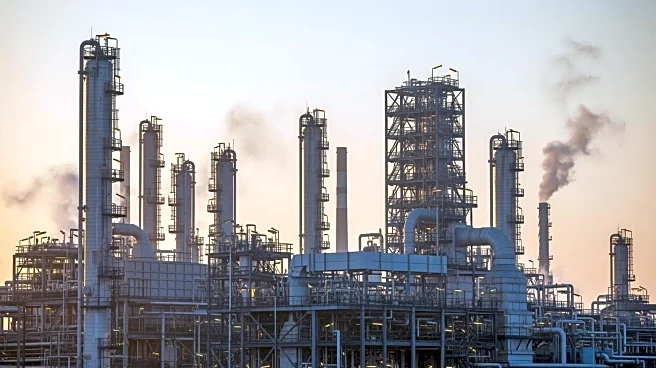What's Happening?
Union refinery operators at the Superior Refinery have self-reported deviations from their operating permits. The International Union of Operating Engineers Local 420, responsible for the daily operations, emphasized that these deviations were not violations
but necessary adjustments to maintain emissions within permitted levels. The union members are committed to environmental consciousness and professionalism, countering accusations of negligence in monitoring emissions.
Why It's Important?
This self-reporting highlights the complexities of operating heavily regulated facilities like petroleum refineries. It underscores the importance of transparency and accountability in maintaining environmental standards. The union's proactive approach in reporting deviations reflects a commitment to compliance and environmental protection, which is crucial for community trust and regulatory relationships. The situation also illustrates the challenges faced by industrial operators in balancing operational demands with environmental responsibilities.
What's Next?
The refinery may undergo further scrutiny to ensure compliance with environmental regulations. The union's actions could lead to discussions about best practices in self-reporting and emissions management. Regulatory agencies might review the refinery's operations to verify adherence to permits, potentially influencing future regulatory policies. The community and environmental groups may engage in dialogue about industrial impacts and sustainability efforts.
Beyond the Headlines
This incident may contribute to broader conversations about the role of unions in advocating for environmental standards and worker safety. It raises questions about the effectiveness of self-reporting mechanisms and the relationship between industrial operators and regulatory bodies. The situation could influence public perceptions of the refinery and its commitment to environmental stewardship.
















